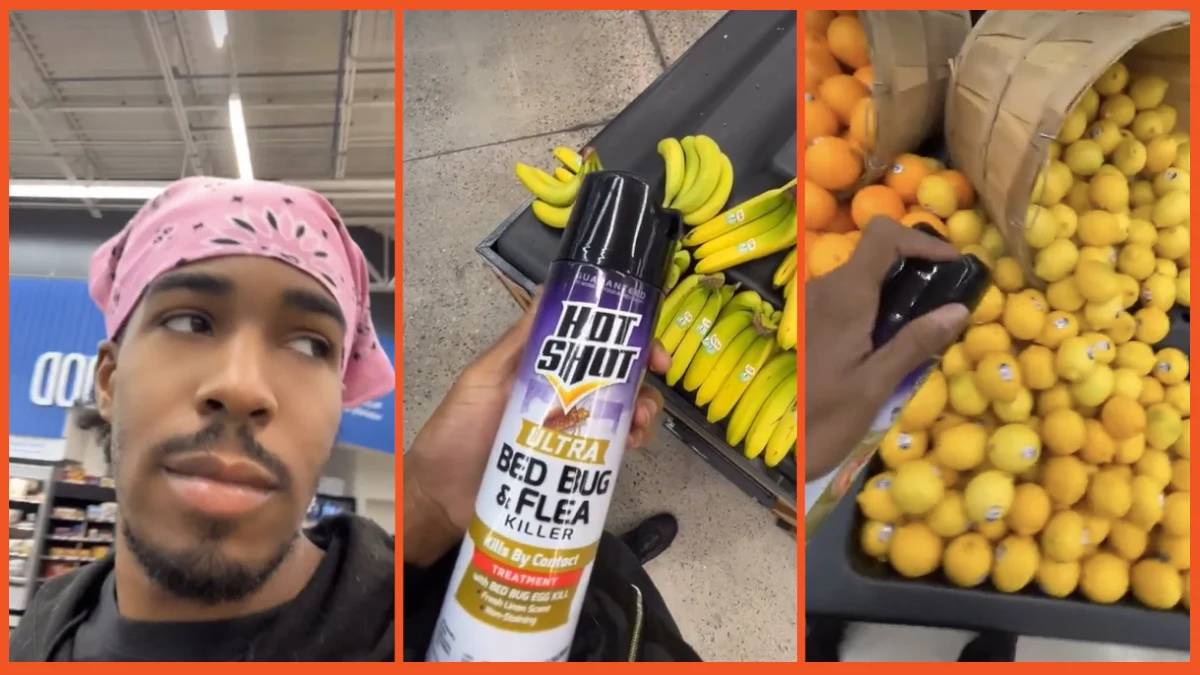The arrest of Charles Smith, a TikToker who goes by the username WolfieKahletti, is a stark reminder of the toxic lengths some individuals will go to for online clout. Smith’s decision to film himself spraying pesticide on perishable food items at a Walmart in Mesa, Arizona, highlights the dangerous intersection of social media validation and reckless behavior.
The Incident
Smith’s video, now deleted but archived on Reddit, shows him spraying Hot Shot Ultra Bed Bug and Flea Killer—a product labeled harmful if ingested—on fruits, vegetables, and roast chicken. His intent, as court documents and police statements suggest, was to stage a “prank” for views and engagement on TikTok. The fallout was immediate: Walmart employees had to discard affected items and sanitize the store, while local shoppers expressed outrage and disbelief.
Public Outrage
Shoppers and social media users alike have condemned Smith’s behavior. Comments like “Pranks should be actually funny. Like, if it’s hurting others in the process, why would you do that?” from shopper Alysia Iverson reflect a growing frustration with harmful stunts masquerading as humor. Smith’s antics have led many to question the platforms and audiences that reward such behavior.
Legal Repercussions
Smith turned himself in after learning he was a wanted man and admitted to his actions during police interviews. He faces multiple charges, including:
- Introducing poison (class 6 felony)
- Criminal damage (class 1 misdemeanor)
- Endangerment (class 1 misdemeanor)
- Theft (class 1 misdemeanor)
These charges carry serious potential consequences, though many worry that lenient sentencing could allow Smith to escape significant accountability. Critics argue that such cases demand harsher penalties to deter future offenses.
A History of Dangerous Pranks
A review of Smith’s TikTok history reveals a troubling pattern. Previous “pranks” include locking shoppers inside a grocery store and tampering with laundry by adding eggs and bacon to dryers. These stunts, like his latest, show a disregard for others’ safety and well-being. Smith claims to earn between $6,000 and $10,000 monthly from his social media antics, further fueling concerns about the monetization of harmful content.
This case raises critical questions about social media’s role in enabling harmful behavior. Platforms often incentivize sensationalism, with algorithms prioritizing engagement over ethics. The Mesa Police Department’s statement, emphasizing the dangers of reckless actions disguised as pranks, underscores the need for societal and platform-level change.
Smith’s arrest serves as a cautionary tale, but it remains to be seen whether his punishment will reflect the gravity of his actions. Beyond legal consequences, this incident highlights the importance of holding social media platforms accountable for curbing harmful content and educating audiences to reject creators who prioritize views over values.
In a digital age where attention is currency, the line between entertainment and endangerment must be clearly drawn—and enforced.




